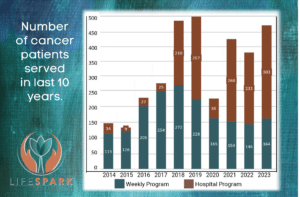A diagnosis of cancer inevitably means that there will be some time away from the job while undergoing treatments, having surgeries, or recovering from these procedures. Disability benefits from the Social Security Administration (SSA) might be available for you in your time of need. While not everyone will qualify with cancer, there’s a good chance that you could receive financial aid to help pay for your medical bills, childcare, and any other daily living needs.
Basic Eligibility for Benefits
Some cancers automatically qualify for Social Security disability benefits, while others must advance or spread before they meet the SSA’s definition of disability. This definition requires a medical condition is expected to prevent employment for a period of at least 12 months, or the condition must be terminal.
Some early-stage forms of cancer can be treated quickly and allow you to return to work in significantly less than one year. When this is the case, cancer alone won’t make you eligible for disability, but the combined effects of cancer and cancer treatments might. When cancer is more severe, less responsive to treatment, or when it has advanced or spread, Social Security Disability Insurance (SSDI) and/or Supplemental Security Income (SSI), may be available to you. SSDI is for adults who’ve worked at least part-time throughout life, and SSI is for people with low income who haven’t worked, or for children.
Medically Qualifying for Benefits with Cancer
The SSA maintains standard disability listings for hundreds of qualifying impairments. These appear in what’s known as the Blue Book, and there’s an entire section that covers various forms of cancer. Listings include cancers that originate in specific organs, like lung, kidney, and thyroid cancers, but there are additional listings for other types of cancer as well, like myeloma, lymphoma, and leukemia.
Some cancers are harder to treat than others, even when detected early. Certain treatment protocols are also harsher or cause more severe side effects. Because of these variations, the rules to qualify with different types of cancer vary significantly, too.
For example, acute leukemia automatically qualifies for benefits and additionally for expedited review and approval under the SSA’s Compassionate Allowances (CAL) program. CAL ensures any application filed for acute leukemia is processed as quickly as possible and that benefits are granted with minimal documentation supporting the claim.
With many other forms of cancer though, including breast cancer, the disease must be:
· in a more advanced stage,
· have come back after treatment,
· or must be a form for which effective treatment isn’t available.
A Medical Vocational Allowance
In some cases, the combined effects of cancer and treatment can result in long-term or permanent disability. If you’ve survived cancer only to be left with lasting limitations that stop you from working, then you may still be eligible to receive disability benefits. You won’t automatically qualify under the listing for the form of cancer you beat, but you could potentially qualify after a residual functional capacity (RFC) evaluation.
During an RFC, your doctor or the disability examiner that reviews your claim will look at all your limitations and every medical condition that affects you. If your medical records and other claim documentation show you are severely limited and unable to work in any job, then you can be granted a medical-vocational allowance. This essentially means that while you don’t meet any particular disability listing, you are nonetheless disabled for at least one year, and therefore medically eligible to receive benefits. You can download an RFC online for your doctor to fill out on your behalf.
Medical Evidence for a Cancer Disability Claim
Certain medical evidence must still be available for the disability examiner to review before a disability application can be approved based on cancer. Essential documentation includes:
· a detailed medical history
· reports of any biopsies or other operations
· pathology reports to accompany any operations
· records of any hospital stays
· treatments used and their results
· records of any lasting side effects or limitations from anti-cancer therapies
The SSA must also have documentation that pinpoints where cancer began. This “origin” determines the disability listing under which an application and all supporting evidence will be reviewed. Sometimes the origination point of cancer cannot be medically determined. In cases like this, the SSA may review the application under any body system affected by the disease. For instance, if metastatic tumors are present in the stomach, the stomach cancer listing may be consulted when reviewing the claim.
Applying for Benefits
Even after looking over listings and medical evidence requirements, it can be hard to know if your cancer will qualify you for disability insurance or SSI benefits. Your doctor can help you understand the SSA’s requirements, and when you’re ready to apply, you may do so at any time. Online application is available, or you may visit your local SSA office and have a representative assist you with the application process.
This article was provided by Disability Benefits Help. If you have any questions about Social Security disability benefits or the application process in general, don’t hesitate to reach out to our team HERE.











